5 tips for getting started at a farmers’ market
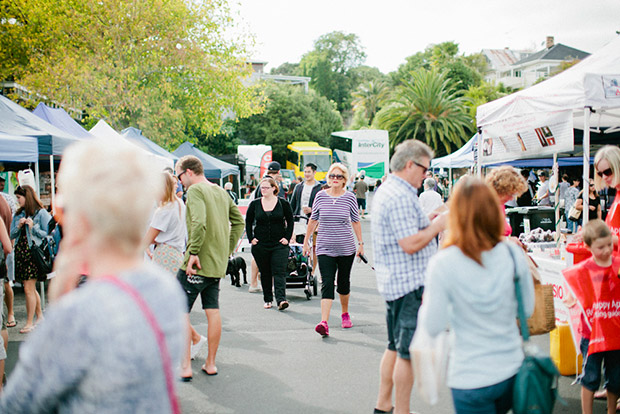
La Cigale Parnell French Market. Photo: Anna Kidman.
Pro tip: You won’t be able to please everyone.
Words: Nadene Hall Images: Sally Tagg
One of the first lessons Soggy Bottom butcher Jono Walker learned when he started attending the local farmers’ markets was you can’t please everyone.
“I can make some bacon and one person will say it’s too salty. The next would say it’s not salty enough, or it’s too lean or too fatty.” Jono says he never asks for feedback, but he doesn’t have to. Everyone has an opinion.
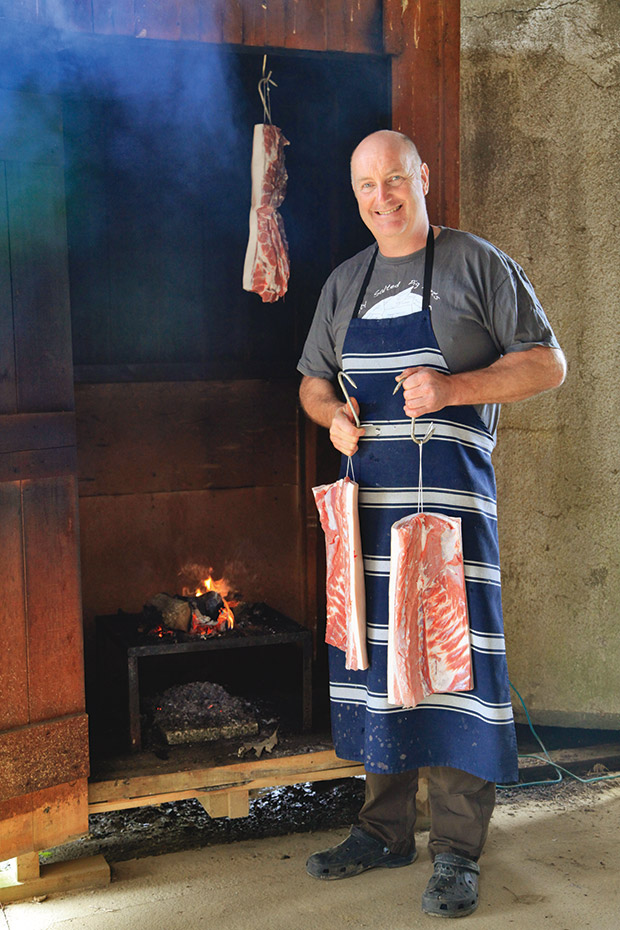
Jono sells fresh and cured meats, sausages, pies and puddings at several markets in the Waikato.
“Some people are just impossible to please, so I say thanks for your feedback, and then I move on.”
The new chairperson of Farmers’ Market NZ only sells his artisan meat products at the Hamilton and Cambridge markets. He and wife Sarah raise pigs on their block just north of Hamilton, then butcher them into fresh meat cuts, cured meat, sausages, puddings, and pies.
EVERYTHING MUST BE LOCAL
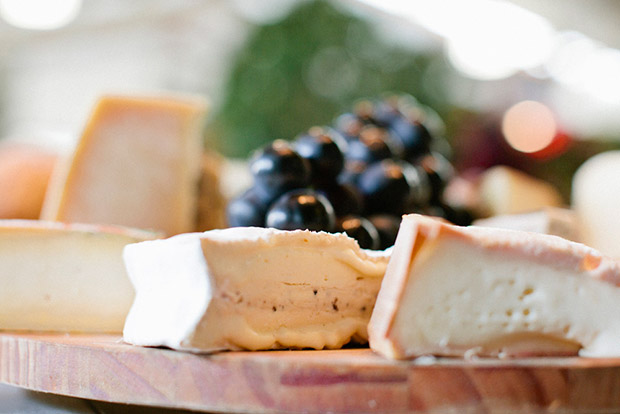
Photo: Anna Kidman.
It’s the local part that can confuse many beginners. Jono says the first thing to check is whether your produce or food product qualifies:
• do you grow and/or make what you want to sell?
• is the produce or product sourced from the defined local region for the market?
“A lot of people don’t understand,” says Jono. “The farmers’ markets are all about supporting local food, not just that it’s made locally but that it uses local ingredients too.”
THE BEST PERSON TO TAKE ADVICE FROM, BEFORE YOU START
There’s one person who can offer you the most help before you ever make a product or plant something.
“It’s a really good idea to talk to the market manager,” says Jono. “They will know where the gaps (in the market) are.”
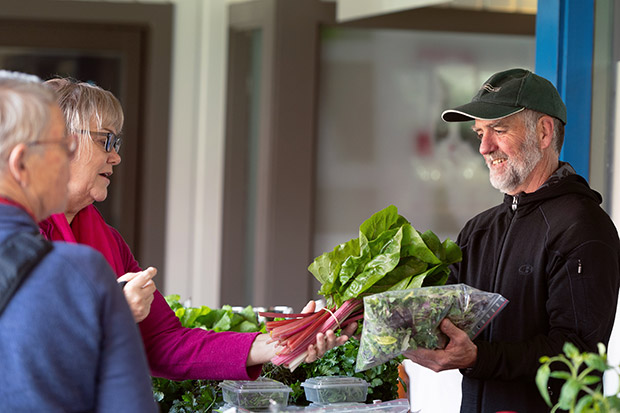
Steve Corkran brings 5.5kg of fresh greens, another 1kg or so of microgreens, and crates of whatever else is ready for harvest that week to the Feilding Farmers’ Market.
Don’t ring the market on a Friday and ask if you can sell that Sunday. “People ring up and say I’ve grown this crop and I’ve picked it, and I want to come tomorrow,” says Jono. “But it doesn’t work like that.”
His advice is to talk to the market manager before you ever plant a crop.
“For example, they may say we’ve got hundreds of pumpkin sellers, don’t plant pumpkins, plant something else.”
DO SOME MARKET RESEARCH
Visit your local market and see what other people are doing. Wander around, check out locations, observe what the busy vendors are doing and how they’re behaving, and compare it with those that aren’t busy.
Jono says don’t be put off if someone else is already doing the same thing. “You may have a point of difference or you may be able to do it better. By that, I don’t mean cheaper, I mean your quality might be better, or you might have different varieties, or heritage varieties, or something like that.
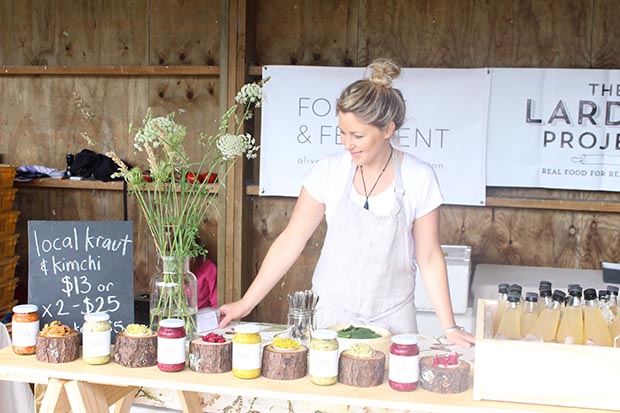
Kelli Walker started selling sauerkraut and kimchi at the Clevedon Farmers Market in 2017.
“There may be somebody there selling amazing tomatoes, but not everyone will want to buy those tomatoes for all sorts of reasons. Sometimes for weird reasons, like they don’t like the seller because he’s Scottish.”
Having multiple vendors selling the same product can be good for the market.
“I think (in the Waikato markets) we should have the best range of milk-based products in the country. Just because we’ve got one cheesemaker doesn’t mean we shouldn’t have another one – we should have three or four because then the market gets a reputation as a really good place to buy cheese.”
GET THE RIGHT PAPERWORK
Low-risk items like fresh fruit and vegetables don’t require much paperwork. Medium to high-risk products like dairy, meat, and fish mean you must have a food safety programme.
Talk to your local council, and check the Ministry of Primary Industries website for what kind of food programme you need.
The Farmers’ Market NZ website has a series of templates to help those new to food safety programmes.
START SMALL
Lots of full-time businesses at the market started small. Jono highly recommends it as a cost-effective way to try your idea.
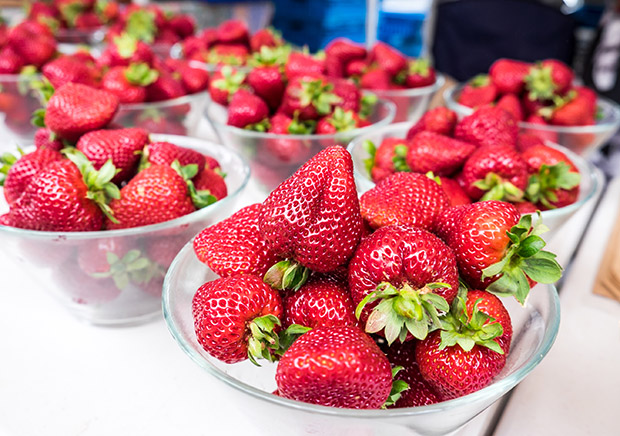
“One of the wonderful things about a farmers’ market is you can start off part-time or as a hobby, doing something you really love. Markets are a business incubator, and you can test your idea out without spending heaps of money.”
The basics are a gazebo, a plastic table, a product, and your time.
“See if it works and if people think it’s lovely and say, ‘I’ll buy it’, you know you’re onto something. It’s not like you have to front up thousands of dollars.”
ABOUT JONO
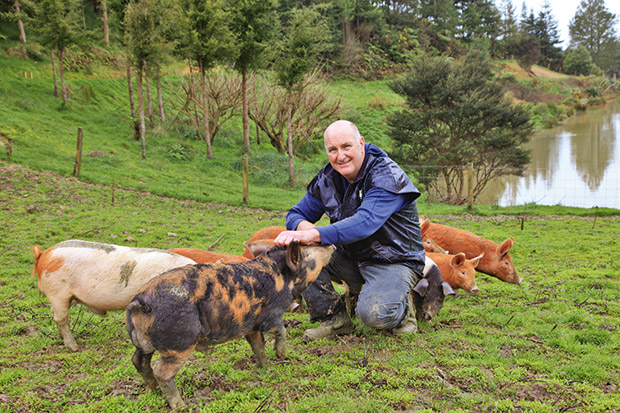
Jono and wife Sarah live on 24ha of hills and gullies at Ngaruawahia and farm up to 90 pigs and piglets. They run Soggy Bottom Holding, a butchery and kitchen producing fresh and cured meats, sausages, pies, and puddings which they sell at the Hamilton and Cambridge farmers’ markets.
MORE HERE:
How these red hot chilli growers turned their Horowhenua block into a small-scale market garden
Love this story? Subscribe now!
 This article first appeared in NZ Lifestyle Block Magazine.
This article first appeared in NZ Lifestyle Block Magazine.
